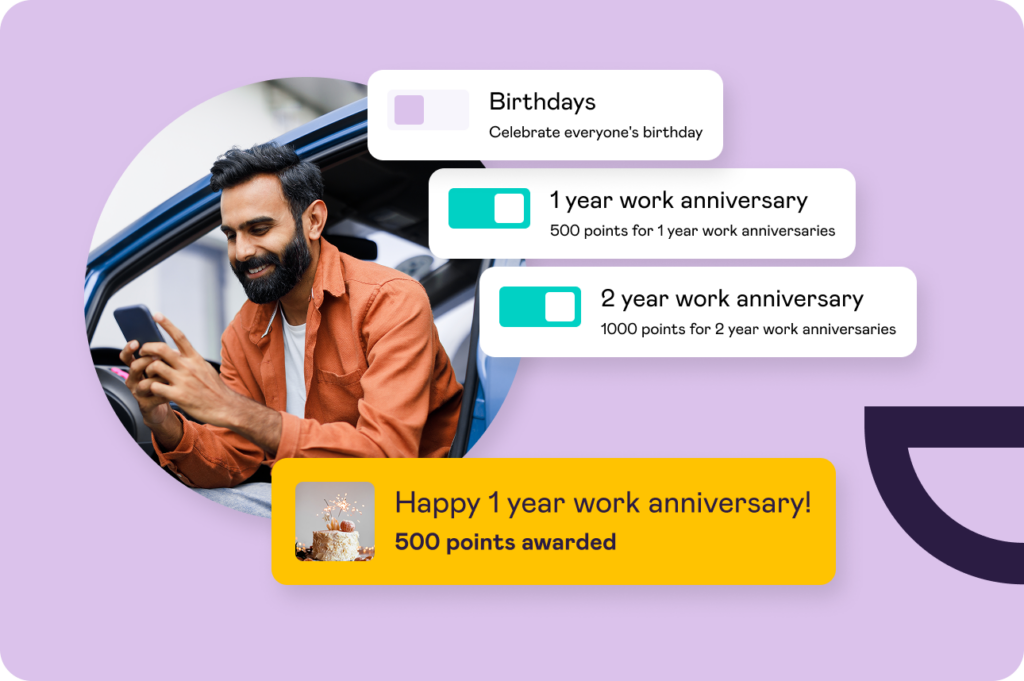The last few years have been turbulent for organisations and workplace culture continues to evolve in response to new challenges.
Technology, economic pressures, shifting employee expectations, and evolving leadership priorities are all reshaping the HR landscape. But what does that mean for 2025?
Here’s our round-up of the six trends defining HR this year. Our insights are rooted in the latest data, including Gallup’s State of the Global Workplace 2025 report.
1. Employee Wellbeing is a Business Priority
Wellbeing has remained a core focus since the pandemic, but this year’s Gallup data makes it clear: it’s now a business imperative. Only 34% of global employees say they are thriving, while 41% reported experiencing significant stress the day before they were surveyed.

Even more striking, workplace stress has reached record levels, and 20% of employees say they felt lonely just the day before.
This chronic strain is more than a wellness issue, it directly impacts performance. Prioritising wellbeing strategies is essential to boost morale, build resilience, and support productivity. Employers must take a proactive stance on mental health, connection and purpose at work to remain competitive.
2. Hybrid Working Has Entered Its Maturity Phase
Hybrid working isn’t just a trend—it’s now the norm. But in 2025, the conversation is shifting from where we work to how we connect.
Gallup’s 2025 report reveals that feelings of belonging and connection are still worryingly low. Many employees feel isolated from their teams, and proximity bias can exacerbate inequality in hybrid settings.
The challenge now is cultural. To create a high-performing hybrid workforce, employers must invest in tools and strategies that foster daily connection, build trust and encourage authentic collaboration—regardless of location.
3. Reskilling and Upskilling to Close the Engagement Gap
Employee development is no longer optional—it’s one of the most effective levers for engagement.
While engagement has flatlined globally at 23%, Gallup notes that when employees see opportunities for growth, they are significantly more likely to be engaged at work.
In 2025, leading organisations are building cultures of continuous learning. They’re investing in internal mobility, digital skill-building, and cross-functional collaboration—ensuring that development is relevant, inclusive and tied to long-term organisational goals.
4. Inclusion Isn’t Optional. It’s Expected
Workplace diversity, equity and inclusion (DEI) remains a top priority despite the current political climate. Unfortunately, execution often lags behind intention.
In a world where Millennials and Gen Z dominate the workforce, inclusive culture is non-negotiable. Yet many organisations still fall short. According to recent Gallup insights, inclusion is a key contributor to whether employees feel they belong—and by extension, whether they stay.
Creating psychologically safe spaces, dismantling structural inequity, and ensuring leaders reflect the diversity of the workforce are all critical steps in 2025. And these efforts can’t be siloed—DEI must be embedded into hiring, communication, recognition and development.
5. Onboarding Needs to Be Human, Not Just Efficient
First impressions matter. Yet, onboarding remains a blind spot.
Gallup’s latest findings still show that only 12% of employees strongly agree their organisation does a great job onboarding new hires. That means most employees begin their roles feeling unsupported and disconnected.
In 2025, onboarding must go beyond paperwork. HR teams are using technology to streamline admin, but the emphasis now is on creating connection from day one. A strong onboarding experience fosters belonging, accelerates productivity, and increases retention, especially when new hires are remote.
6. Recognition is a Culture-Building Tool
Recognition is no longer a ‘nice-to-have’. It’s a strategic driver of engagement and business success.
Gallup has long reported the impact of recognition on retention, productivity and wellbeing. In 2025, the evidence is even clearer: organisations that foster cultures of frequent, authentic recognition see stronger results across the board.
When employees feel valued, they’re more likely to stay, contribute meaningfully and recommend their workplace to others. The key is consistency. Recognition must be frequent, peer-to-peer and built into the rhythm of everyday work.
With platforms like Mo, companies are integrating recognition into daily workflows, encouraging teams to celebrate wins and build connection in real time.
HR Trends: Key Takeaways
2025 is a year of intentional culture-building. The trends are clear: wellbeing, connection and belonging aren’t soft perks, they’re performance drivers.
While Gallup’s 2025 report highlights global stagnation in engagement, it also provides a roadmap: focus on great management, invest in people, and act on employee feedback.
Want help turning insights into action? Speak to the Mo team about how we help organisations create connected, motivated and high-performing teams through meaningful recognition.
Mo is an employee recognition and engagement platform that can help leaders improve collaboration and morale, reduce employee churn and drive change.
Our platform creates a vibrant culture by developing team habits, encouraging people to celebrate success, recognise results and appreciate colleagues. Your complete toolkit for connecting and motivating teams in the new world of work. Book a demo with our team today.

